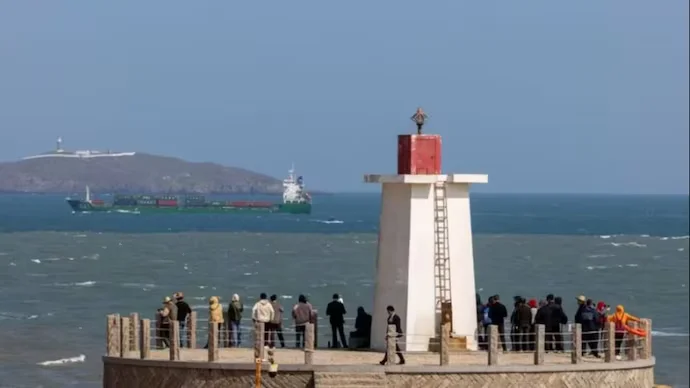InternationalNews
Taiwan protests China’s ‘unilateral’ adjustment of flight routes
Taiwan's government expressed anger after China "unilaterally" changed a flight path close to the sensitive median line in the Taiwan Strait, saying it appeared to be a deliberate attempt to change the status quo for possible military means.

In the latest development, Taiwan has formally protested against China’s unilateral adjustment of flight routes in the sensitive Taiwan Strait. The move, seen as a provocative action by the Taiwanese government, has heightened tensions in the region and raised concerns about potential implications for regional stability.
Key Points:
- Unilateral Flight Route Adjustment:
- China’s recent decision to unilaterally adjust flight routes in the Taiwan Strait has drawn strong objections from Taiwan. The adjustments include changes to the northbound and southbound flight paths, impacting the airspace close to Taiwan.
- Violation of Existing Agreements:
- Taiwan contends that China’s action violates existing agreements and undermines the status quo in the region. The Taiwan Strait, a strategically significant waterway, has been a longstanding point of contention between the two entities.
- National Security Concerns:
- Taiwan views the unilateral adjustment of flight routes as a potential threat to its national security. The move is perceived as a calculated effort by China to assert its influence in the region, further complicating the delicate cross-strait relations.
- International Response:
- The international community has been closely monitoring the developments, with concerns raised about the potential for heightened tensions. The United States and other countries have called for restraint and diplomatic dialogue to address the issue peacefully.
- Cross-Strait Relations:
- The Taiwan Strait has been a focal point in the longstanding dispute between China and Taiwan. While Taiwan considers itself a sovereign state, China sees Taiwan as a renegade province and has not ruled out the use of force to achieve reunification.
- Impact on Regional Stability:
- The unilateral adjustment of flight routes adds to the existing geopolitical complexities in the region. The potential for miscalculations and misunderstandings between the two sides raises concerns about the overall stability of the Asia-Pacific region.
- Diplomatic Channels:
- Amid rising tensions, diplomatic channels remain crucial in resolving disputes and preventing escalation. Both sides are urged to engage in dialogue to address concerns and find mutually acceptable solutions.
- Global Watch:
- The international community, including regional stakeholders, will continue to closely watch the evolving situation. Any escalation in tensions has the potential to impact not only the stability of the Taiwan Strait but also broader geopolitical dynamics.
China’s unilateral adjustment of flight routes in the Taiwan Strait has triggered a diplomatic standoff, prompting strong objections from Taiwan and raising concerns about the potential for increased tensions in the region. The situation underscores the delicate nature of cross-strait relations and the need for diplomatic efforts to maintain stability and prevent further escalation.




